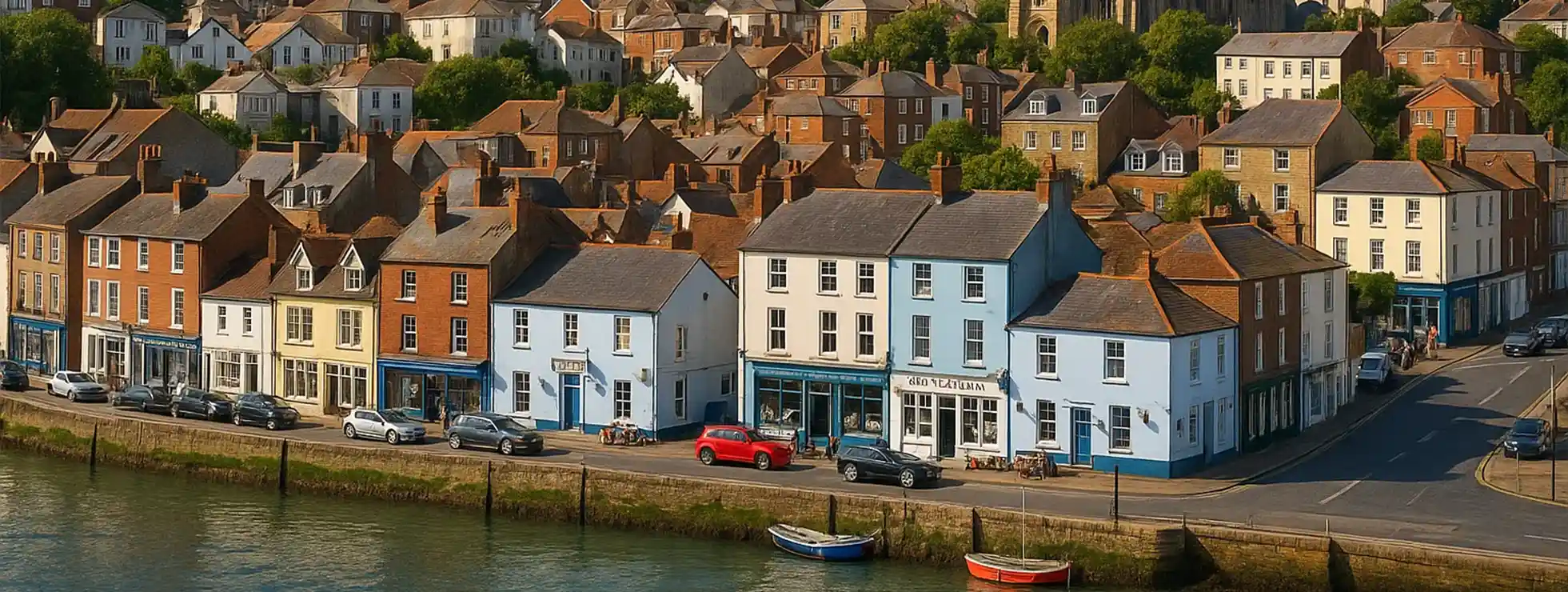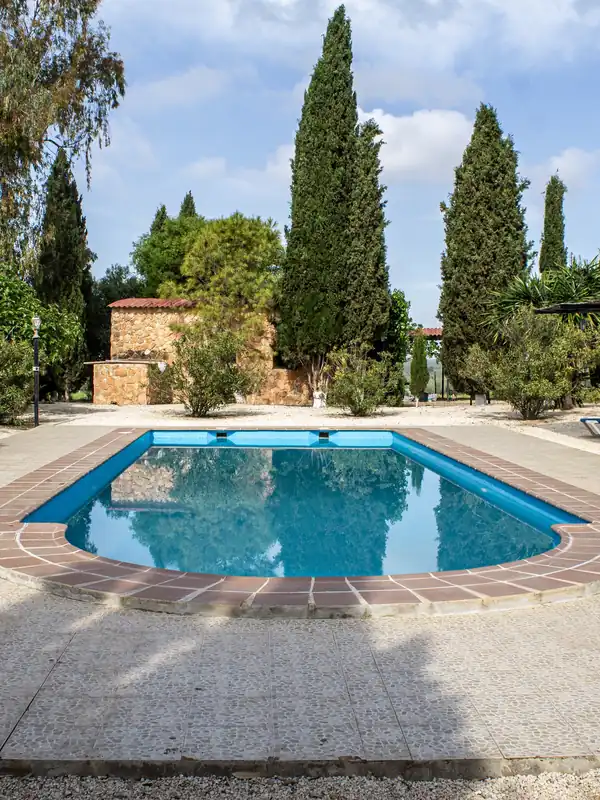Alcohol Rehab Aberdeen
March 26, 2025
At Sierra Recovery, we understand that recovery is a journey anyone can achieve. Nestled in a tranquil, mountainous region of Malaga embraced by nature and horses, our luxurious yet rustic alcoh...
Isle of Wight rehab can be completed in an inpatient or outpatient setting. Choosing the right rehab programme depends on your personal preference, goals, and therapeutic needs.


Residential rehab is particularly beneficial for those who need a structured and controlled environment to manage their alcohol use or co-occurring mental health conditions. It is also ideal for individuals who have relapsed or those with unmanageable symptoms, as it provides intensive care and round-the-clock supervision. The immersive programme includes medical detox, therapy, and other supportive interventions to help individuals focus solely on their recovery
Outpatient rehab allows individuals to receive treatment while continuing to live at home. This flexible approach is perfect for those who are not too dependent on alcohol and can manage their recovery independently. It is also suitable for individuals with strong support systems and the discipline to stay committed. While it offers the same interventions as inpatient rehab, it is generally less intensive and may not be sufficient for individuals with unpredictable or severe addiction.

Detox is the first step in overcoming addiction to drugs or alcohol. This critical process clears the body of toxins while managing alcohol withdrawal symptoms and cravings. Due to instability and complications that may arise, undergoing medically supervised detox is strongly recommended.
Alcohol misuse often stems from or contributes to underlying mental health conditions, such as burnout, trauma, or anxiety. Addressing these mental health issues as part of addiction treatment is vital to ensure emotional resilience, prevent relapse, and achieve lasting recovery.
In many cases, alcohol addiction coexists with other mental health disorders such as depression, anxiety, and PTSD. Treating both the addiction and the mental health condition simultaneously, rather than in isolation, improves recovery outcomes and reduces the likelihood of relapse.
Holistic treatment focuses on healing the entire person – mind, body, and spirit. This alternative therapy aims to restore balance and enhance overall well-being through wellness practices such as yoga, meditation, breathwork, and even meaningful bonding with horses.
Psychotherapy is the foundation of most treatment programmes. Therapy may be delivered through individual or group settings and is typically guided by a therapist using evidence-based approaches such as CBT, DBT, and EMDR Therapy, among others.

The cost of drug and alcohol rehab in the UK varies widely, ranging from free or low-cost options to high-end, pricey facilities. Several factors influence the total expense, including the type of treatment, the facility’s location, the staff in charge, and the amenities provided.
Private drug and alcohol rehabs typically charge roughly £1,000 per week and around £8,000 to £30,000 for a month-long stay. Luxury rehabs in the UK may charge up to three times more than standard facilities.
The National Health Service in the UK reported that the Isle of Wight gained an 80% increase in alcohol-related hospital admissions, rising from 1,870 to 3,370 cases from 2012 to 2019. This surge is considerably higher than the regional average in the South East. It was also found out that in 2020, the Isle of Wight recorded the highest alcohol-related mortality rate in the South East at 47.2 deaths per 100,000 people, surpassing the towns of Portsmouth and Reading.
This rising trend in alcohol-related issues across the Isle of Wight and the wider Southern region highlights the pressing need for enhanced public health interventions, increased funding for addiction support services, and greater community awareness.

There are established alcohol and drug rehab centres in and near the Isle of Wight. You can check them out here
They offer private medical alcohol detoxification and addiction treatment programmes.
Medina Valley Centre, Newport PO30 5TE, UK
They deliver virtual and inpatient services to support addiction recovery.
Somerton Lodge, 43 Victoria Ave, Shanklin PO37 6LT, UK
They offer residential drug and alcohol rehab in Worthing, West Sussex.
18 Winchester Rd, Worthing BN11 4DJ, UK
They provide weekly counselling sessions for people recovering from alcohol or drug addiction.
Cross St, Brading, Sandown PO36 0DL, UK

If entering rehab feels a bit too much, you can opt for support groups that can help you navigate addiction and mental health problems.
A global fellowship adopting the 12-step recovery programme for recovering alcoholics.
They provide free confidential services for anyone using substances or affected by addiction.
They offer a faith-based therapy programme for drug and alcohol services.
One of the primary advantages of private rehab is immediate access to treatment. Unlike public services, which often have long wait lists, private facilities can admit patients promptly following a streamlined assessment process. They also provide more personalised treatment plans, combining evidence-based therapies with holistic approaches.
Private facilities also offer a discreet and cosy environment free from stigma and unwanted exposure. Lower patient-to-staff ratios make care more intensive, focused, and responsive. While cost can be a consideration, it is a valuable investment for long-term recovery. When urgency, comfort, and quality care are priorities, private rehabilitation offers the best option.

Our rehab facility in Spain offers unique advantages that many local centres cannot match. If you’re seeking rehab away from the Isle of Wight, Sierra Recovery may be your best choice.
Sierra Recovery is located in a quiet, remote area of Malaga, where you can enjoy your stay in peace. We only accept a few residents at a time to ensure utmost privacy and confidentiality.
Outstanding service doesn’t have to be costly. Sierra Recovery guarantees all-inclusive treatment packages that deliver excellent results without compromising quality.
Sierra Recovery offers world-class services through elegant accommodation and high-end facilities, combining the appeal of rustic Spanish architecture with modern luxury amenities.
Our overseas rehab offers a change of scenery, allowing you to step away from familiar triggers and distractions. Sierra Recovery lets you reset, reflect, and rebuild your life the best way we can.
Sierra Recovery is surrounded by the serene beauty of mountains, fresh air, and the calming presence of animals on-site. Our natural setting promotes harmony, restoration, and mental clarity.
The wait for treatment can be stressful and anxiety-inducing. At Sierra Recovery, our straightforward admission process allows you to transition smoothly into our care as soon as you are ready.
Going to Malaga, Spain, is a multi-leg journey from the Isle of Wight, but it’s quick and worth it.
Going to London: Begin by taking a ferry from the Isle of Wight to the mainland. This takes only about 22 minutes. From Portsmouth Harbour, you can catch a train to London and travel to the local airport, London Gatwick Airport (LGW). This can be done via train and takes around 30 to 40 minutes.
Flying from London Gatwick Airport to Malaga: For the last trip, board a direct flight to the Málaga–Costa del Sol Airport (AGP). The journey takes roughly 2 hours and 55 minutes.
Other alternatives are flights departing from Bournemouth airport.
To make your journey as smooth as possible, we offer a complimentary pick-up service from Malaga Airport. Our team will be there to greet you upon arrival and ensure a comfortable transfer directly to our rehab facility, located just an hour away.
The path to recovery begins with a comprehensive assessment conducted by our clinical team. This initial step analyses the individual’s clinical background to design a tailored treatment plan.
The first phase of residential rehab typically involves medical detox. Once detox is complete, the client transitions into the core therapeutic phase, involving individual and group therapy alongside wellness activities. Each day follows a structured timetable, blending clinically proven effective tools with skill-building exercises, psychoeducation, and a time to rest and talk to loved ones.


Our commitment to your well-being extends beyond your time at our facility. At Sierra Recovery, we understand that true healing does not end when a treatment programme does. We offer extended support through our personalised and structured aftercare, including access to outpatient services, counselling, peer support groups, regular check-ins, and practical relapse prevention techniques.
If you or a loved one is struggling with drug or alcohol addiction, Sierra Recovery is here to prioritise your well-being. If you’re looking for rehab, we offer exceptional services tailored to those seeking addiction treatment. You don’t have to endure what we can help treat.
The duration of treatment depends on the severity of the addiction and the chosen programme. Short-term rehab may last a few weeks to a few months, while long-term programmes can extend to 90 days or more.
The first step is acknowledging the problem. From there, individuals are encouraged to seek support from loved ones, contact professionals, and engage in a rehab treatment plan.
Alcohol detox typically lasts between three and seven days, though this can vary depending on the individual’s health and other personal factors. Medical supervision is strongly recommended, as alcohol withdrawal can be uncomfortable and in some cases, life-threatening.
At Sierra Recovery, we understand that recovery is a journey anyone can achieve. Nestled in a tranquil, mountainous region of Malaga embraced by nature and horses, our luxurious yet rustic alcoh...
Basingstoke is a market town that expanded in the 1960s due to an agreement between the London and Hampshire city councils. Before the Second World War, Basingstoke's population was around 13,00...
Bedford in the county of Bedfordshire may be a beautiful town. However, just like any other place in the world, it also faces the same problem with alcohol abuse and addiction. If you reside aro...
Addiction is an issue that any city around the globe is experiencing. The same goes for the alcohol problem in Belfast. If you or your loved one is facing problems with alcohol abuse in Belfast,...
In the county of Berkshire, the effects of alcoholism are wide-ranging. One's harmful drinking not only affects the individuals themselves but their families and communities as well. If you are ...
Bolton is a town located in Greater Manchester. It used to be a mill town but has become a centre for textile production. It became a boomtown thanks to textile production during the Industrial ...
Brighton is seeing problems with alcohol misuse among its residents. While occasional drinking during celebrations is not harmful, some consume alcohol way beyond the recommended limit –especial...
Buckinghamshire is a ceremonial county in South East England and is one of the home counties. The largest settlement in the county is Milton Keynes, and the 2021 census puts the county's populat...